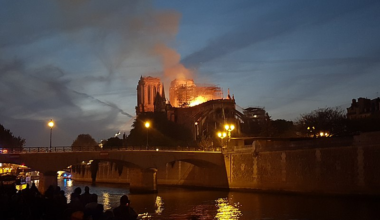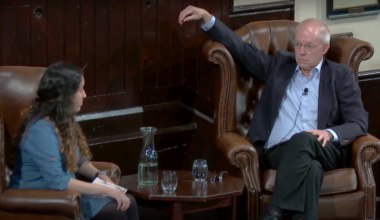
Eschatology, from the Christian perspective, is a systematic study of the end of time or the events of the end of the current age and the inauguration of a new and quite distinct one.
At the heart of this doctrine is the assumption that there was a time when the world began and that there will also be a time when the world shall end. The exact timing of the world’s end is known only to God the Father (Matt. 24.36), but Christians will know that the end is approaching by understanding the signs of the coming apocalyptic events as prophesied by their shamans.
We are here faced with the problem of different worldviews: the cyclical and linear interpretations of history. Some religions, including Christianity, endorse the linear view of time: there was a beginning and we are moving towards the end. But even on this view, it is not clear that something must also end just because it begins. Nor is historical (material) progress necessarily measured on a straight line.
The question of when (and if) the world began remains (and perhaps will always remain) a mystery. For now, every attempt at an answer—religious or scientific—must be treated as essentially guesswork. Besides, creation days, if there were ever any, must not be confused with the world’s beginning. God may not have started structuring or furnishing the world at the same time as he created it. Just as clocks need batteries to function before they can begin telling us the time, the world may not have looked as it is now for a long time after its initial creation.
If we are uncertain when the world began and how old it is, we are equally not certain when it shall end—even if the Christian view is taken as our starting point. It is therefore madness to go around making noise and disturbing others about the end of the world. But where does the eschatological myth come from in the first place?
The lost Golden Age is a universal myth found in almost all the cultures of all the peoples of the world. This age was a perfect age. There was no evil, no pain, no suffering, no death, no war, no poverty, no starvation, no hunger, no injustice of any kind. There was a cosmic peace and the wolves lay down with the lambs. It was an age when the gods dwelled among and walked with men on this earth.
This age came to a sudden end when men decided to free themselves from the bondage of the gods and be independent. This was seen by the gods as disobedience, and they regretted the creation of man and withdrew their blessings, cursing the world and making life difficult for man. Thus, we have the religious explanation for the existence of evil and suffering in the world.
In Christianity, this single act of alleged disobedience cost both man and God their lives. Men became mortal and prone to illness, and God had to have himself tortured and sacrificed to save man from his own folly. The redemption of man symbolises the destruction of the old world and the creation of a new one. But the new creation will not be revealed until the Parousia, or Second Coming.
This new creation is clearly meant to be a restored Golden Age. In Revelation 21.1-8, you get an exact picture of the so-called Golden Age: there will be no more suffering or death (for the believers, that is). It is obvious that the desire for the end of the world in favour of a new, perfect one is a nostalgic desire, born out of regret for losing the ideal world. It is a future-facing nostalgia, a hope that the past will be restored anew. Eschatology is culture shock: a longing for your hometown after you left it for another country.
Humans have come of age. We abandoned the gods. But adulthood is not without a price. It means responsibility. It means facing challenges head-on. It means accepting conflict and imperfection. Ours is a competitive world, full of evil and suffering that is almost unbearable to witness. To live in this world is to suffer and die, and it is this experience that man is not ready for. Instead, too many of us want to escape it by imagining a lost Golden Age that might somehow be regained at the coming of some mythical messiah.
This is nothing but an attempt to escape (from) the challenges and responsibilities of the world. Man is by nature a lazy, pleasure-seeking being who does not want to work and suffer but desires to lose himself in food and drink and money and sex. This is more or less what all ideas of Heaven or Nirvana appeal to: our desire for luxury and ease. Heaven is a world without work, without pain, without suffering, without death; it is, as Revelation 21.1-8 demonstrates, the perfect world for lazy shits.
But there is no escape from this life. We must face our challenges and learn to take responsibility. This is the brutal and unavoidable reality. Utopias exist only in the minds of dreamers, and rely upon wish thinking and fantasy for their power. Eschatology is a form of homesickness, except that there was never any perfect home to be sick over.
Further reading
How I lost my religious belief: A personal story from Nigeria, by Suyum Audu
The need for a new Enlightenment, by Christopher Hitchens







Your email address will not be published. Comments are subject to our Community Guidelines. Required fields are marked *
Donate